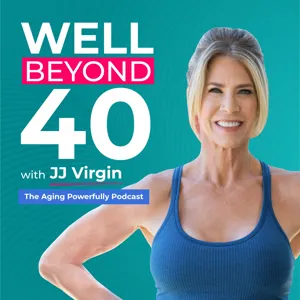Podcast Summary
Happiness is the difference between expectations and reality: Understanding that happiness is a choice based on our perception of events and practicing it despite imperfections can lead to increased well-being and contentment.
Happiness is not just a feeling, but a choice that depends on how we perceive and respond to the events in our lives. According to Mo Gaudet, happiness can be defined as the difference between our expectations and the reality of our experiences. If the events meet or exceed our expectations, we feel happy. If not, we may feel unhappy. Mo shared this perspective after the tragic death of his son, which led him on a mission to make people happier. He emphasized that it's essential to be okay with life's imperfections and understand that perfection is an unrealistic expectation. By focusing on the skill of happiness and practicing it despite obstacles, we can increase our overall sense of well-being and contentment.
Understanding the difference between pain and suffering: Pain is temporary and natural, while suffering is a prolonged mental state that hinders growth. Recognize pain, accept it, and learn from it to avoid prolonged suffering.
Pain and suffering are not the same. Pain is an unavoidable part of life, often leading to growth and learning, while suffering is a choice to dwell on that pain and reexperience it repeatedly. The speaker emphasizes the importance of acceptance, particularly in difficult situations like the loss of a loved one. Pain from such events is physical and intense, but it's essential to recognize that it's a part of life and will pass. Suffering, on the other hand, is a prolonged mental state that can hinder personal growth. Neuroscientific research shows that negative emotions, like anger, only last for 90 seconds before the hormones responsible are flushed out of the body. Therefore, it's crucial to avoid getting stuck in a cycle of suffering and instead focus on learning from the pain and moving forward.
Choose your reactions and stories: We have the power to choose our reactions and the stories we tell ourselves, even in uncomfortable situations, for greater happiness.
We have the power to choose our reactions to situations and the stories we tell ourselves, even if it feels uncomfortable. Our brains may naturally gravitate towards negative thoughts, but we can consciously choose to focus on positive ones instead. This is a powerful tool for happiness, as many events are neutral, but the meaning we attach to them determines the outcome. We may have been conditioned to react negatively or feel victimized, but it's important to remember that we're not six anymore and we have the ability to make different choices. By taking radical responsibility for our emotions and the stories we tell ourselves, we can practice choosing happiness in any situation.
The power of perception and reaction: Our reactions to events shape our experiences and ultimately, our lives. Surrendering to the nature of life and reframing our stories can lead to a happier existence.
We have the power to choose how we perceive and react to events in our lives. As Edith Eger, a Holocaust survivor, wisely shared, events are neutral, and it's our mindset that gives them meaning. We can react negatively or positively, and our reactions shape our experiences and ultimately, our lives. The idea of surrender, not as a form of weakness but as the ultimate form of strength, is crucial. Surrendering to the nature of life means acknowledging that certain things are beyond our control and focusing our energy on what we can change. By reframing our stories and letting go of disempowering beliefs, we can create a better narrative for ourselves and live happier lives. The happiness equation lies in the space between our circumstances and our response to them.
Transforming experiences into enjoyable moments: Embrace challenges, focus on connections, and live in the present to find happiness and fulfillment
Our perception of events and situations significantly impacts our happiness and overall well-being. By changing our expectations and embracing the inevitable challenges and delays in life, we can transform our experiences into enjoyable moments. Happiness is not something we need to achieve, but rather a state of calm and peaceful contentment that exists within us. We can only spoil it by adding unnecessary burdens and expectations. By focusing on human connections, love, and new experiences, we can make the most of each moment and live a fulfilling life. Remember, it's not the number of heartbeats we have, but how we spend them that truly matters. So, make each second count by living in the present and cherishing the beautiful moments.
Receive weekly positivity and inspiration with Dr. Chasen's 'Friday 5': Sign up for Dr. Chasen's free weekly newsletter 'Friday 5' to receive inspiring quotes, interesting research, and recommendations to start your weekend on a positive note.
Dr. Chasen offers a free weekly newsletter called "Friday 5" where he shares inspiring quotes, interesting research, and recommendations from his reading. The goal is to provide a small, yet powerful dose of positivity to help you start your weekend on a good note. You can sign up for it at DrChasci.com/Friday5. So, whether you're looking for a quick boost of motivation or want to stay informed on the latest research, "Friday 5" is a great resource to add to your weekly routine. Don't miss out, be sure to subscribe and stay tuned for more insightful conversations on his long-form Wednesday episodes and the latest episode of Bite Science on Fridays.





